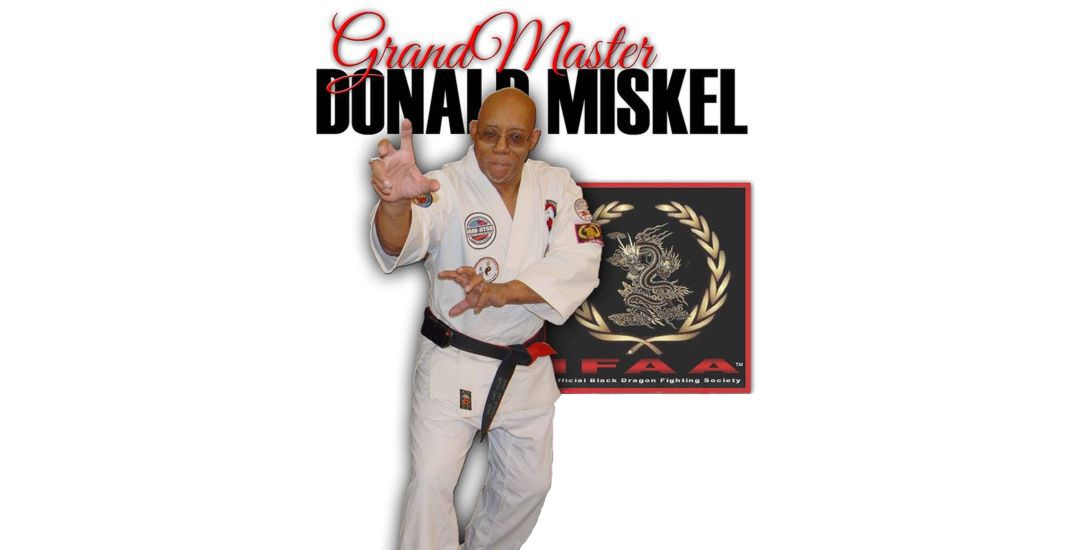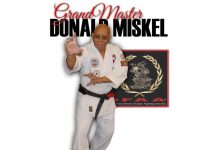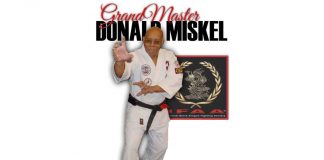It comes as no surprise to anyone who knows me and who chances to read any of my essays or articles that I am minister, pastor and martial artist. All sorta rolled up into one. A hybrid as it were. When I look at the condition of the martial arts and the martial art community in the U.S. I am rather disappointed and since I think I’m the conscience of the entire civilized world I am moved to offer commentary and response.
I was talking to a friend and coworker (not easy to do since I’m retired) who is a journalist and primarily focused on the martial arts. We were discussing martial arts ethics or the apparent lack thereof. Let me qualify that. The problem isn’t all pervasive but it is too prevalent for my comfort. There are factions within our community who seems to believe that permissiveness determines content. In other words it’s permitted simply because they want to do it. If it fulfills the need of the moment or furthers the cause honesty shouldn’t enter into it. Certain people are lying, exaggerating and misrepresenting themselves, their backgrounds and their experience to garner undeserved acceptance in the martial art world.
I am a believer that ability and not tradition should describe the validity of any martial art.
I am a believer that ability and not tradition should describe the validity of any martial art. If it is designed for combat or self defense it should be judged by its martial merit and not by the traditional history of the creator. However if a fighting system is going to be labeled a martial art, as much emphasis should be placed on the art aspect as the martial content.
A martial art is supposed to teach more than just fighting. It doesn’t take much art to dot someone’s eye (ghetto speak). A martial art is more than just a kick or punch. It’s more than dispensing bloody noses and split lips. Any playground bully can accomplish that. A true martial artist strives to instill life lessons into his students using the martial discipline in question as a tool. The martial arts should teach patience, discipline, tolerance and compassion. You may wonder how something that is designed for combat can accomplish all of that. I’m glad you asked. I hope that I can give e a logical answer to that question.
There are two schools of thoughts concerning the martial arts, each with its individual philosophy and approach to teaching and execution of the said techniques. Each has its own objective. The jitsu school of thought is concerned with learning and teaching effective fighting techniques. There is nothing wrong with this approach. In a society where violence is becoming the rule rather than the exception to the rule it is necessary to be able to defend one’s self and family. A man especially should be able to be the protector of what is his. It’s part of his responsibility as a man. He’s the first line of defense in the face of confrontation, threat and danger. He needs some training and ability if he is to be effective in such an eventuality. Of course, in today’s society, this need isn’t just the domain of the male. Women find themselves confronted by violence and need to address the problem themselves.
The other school of thought is the ’do’ concept. A do uses an art, be it martial or otherwise, to teach more than the art itself. These arts are used as character builders and a person should derive more than just technical expertise in the particular art that makes up this ‘do’. Life lessons should be learned to improve the total person.
Neither the “do’ nor the jitsu approach is pure and total in its content. Leaning too much in one direction, we too often throw out the baby with the bathwater. Let me see if I can clarify what I’m trying to say here. Most martial arts are familiar with the symbol of yin and yang. It represents the law of opposites. You have a circle equally divided by a serpentine squiggle. Half of the circle is black and half is white but even in the black there is a tiny dot or circle of white and in the white we find a dot of black. Even in the yin you will find some yang and vise versa. Karate is a hard system but if you study it long enough you’ll find some soft components. Kime (focus) and kiah (spirit shout) encompass the ki or chi that’s prevalent in aikido and tai chi Chaun both soft or internal systems.
What am I trying to say here? I’m saying that regardless of your philosophy, art or method of teaching some of the opposite approach should season your art.
I don’t expect every instructor of the martial arts to be a Christian, though as a Christian minister I feel that that would be ideal, but I do feel that ethics should be the foundation of the arts we teach, how we teach them and how we promote ourselves. I have a good deal of traditional training but I am not a traditional martial artist. I hold advanced rank in several arts but my highest rank is in eclectic arts that probably wouldn’t be recognized by any traditional organization. Consequently to promote myself as a master in any of those arts would be unethical regardless of how I am viewed by my peers and brothers in the arts. I hold pretty high rank in shuri ryu kempo and shorei goju karate but I can’t and don’t claim to be a grandmaster in either. To do so would be dishonest.
There have also arisen instances where sensei have been accused or suspected of taking indecent liberties with students. It isn’t my place to assign guilt or innocence in these situations but I will say that it is unwise for an instructor to become intimately involved with his students even if they are of age. We as instructors and martial art masters should hold ourselves to a higher standard. A certain expectation of moral responsibility is garnered on the martial art instructor. Parents often entrust the safety and wellbeing of their children to us. That’s a trust that must not be violated on any level.
Whether we teach a ‘do’ or a jitsu, a traditional art or a strictly combative one certain criteria must govern our conduct. We as the instructors and ambassadors of our various arts must hold ourselves to a higher standard. We should strive for moral excellence. We are not only instructors but we are representatives of our arts, our schools and the martial art community in general. In a judgmental world the few of us speak for the many of us. All of us will be judged by the actions of those who attract public attention for the better or worse.
Ending this rather rambling dissertation I admonish each of you, myself included, to support and teach martial arts ethics and to be honest and above board. Be transparent. Ulterior motives and hidden agendas have no rightful place in the martial arts. Too much is expected of us to do otherwise.
God bless you, my brethren. Train hard and go with God.
Rev. Dr. Donald Miskel





